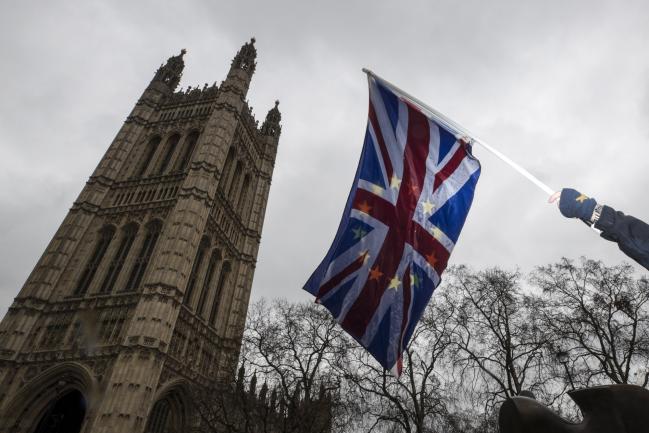(Bloomberg) -- The U.K’s Brexit payments to the European Union could exceed the 39 billion-pound ($55 billion) ceiling of the Treasury’s estimate, the government auditor said, reviving discussion about one of the most controversial elements of December’s divorce agreement.
Prime Minister Theresa May at the end of last year reached agreement with her 27 EU counterparts on the draft terms of an exit deal, that included payments from Britain to EU coffers totaling 35 to 39 billion pounds.
The Brexit bill, though unpalatable to the most ardent Brexit supporters in May’s Conservatives, was presented as a U.K. victory, because figures as high as 100 billion euros ($124 billion) had been cited during the talks.
But the final tally may yet exceed the government estimate because it’s based on Treasury assumptions, according to a report by the National Audit Office. Small changes to any of those assumptions -- which include exchange rates and Britain’s economic performance -- may lead the final bill to fall outside the stated range, it said, without providing a fresh estimate.
The government’s spending adviser, the Office for Budget Responsibility, last month estimated that final payments -- stretching as far as 2064 -- will total 37.1 billion pounds.
The office said that while the Treasury’s estimate was “reasonable,” a number of factors could lead the final bill to differ. They include:
- Changes in the exchange rate, because the final bill is payable in euros. The Treasury used a rate of 1.13 euros to the pound for its estimate
- Differences in Britain’s economic performance. The U.K. will pay as normal into the EU budget in 2019 and 2020, even as it officially departs the bloc. The value of those payments will vary according to how the U.K. economy performs in relation to the rest of the EU
- Economic performance will over the next two years will also affect Britain’s share of EU liabilities after 2020
- Estimates of future pension liabilities for EU officials are based on assumptions on mortality rates and future salary increases, all of which may turn out differently
- The EU can request up to five months of budget payments in the first three months of a calendar year, and Treasury assumptions are based on this happening in the first quarter of 2019, leading up to the scheduled Brexit day of March 29. If it doesn’t happen, that means extra payments of as much as 3 billion pounds will be made after Brexit, technically increasing the post-departure bill
- U.K. commitments to the European Development Fund are expected to cost 2.9 billion pounds after Brexit. But they’re not included in the total for the bill, because the fund is not established under EU treaties
